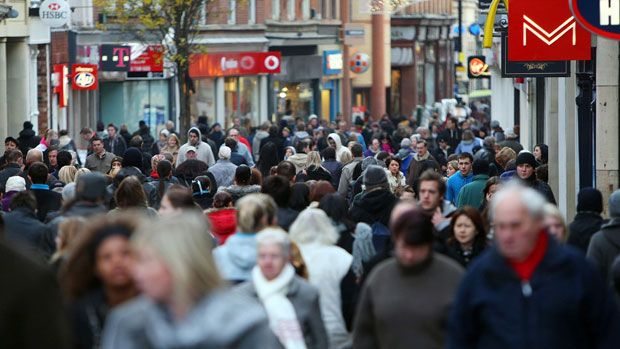Five surprising findings from British Social Attitudes survey
Britons more positive towards immigrants, but unsure on transgender teachers

A free daily email with the biggest news stories of the day – and the best features from TheWeek.com
You are now subscribed
Your newsletter sign-up was successful
Britons are tired of austerity but fewer now expect the government to guarantee healthcare, pensions or jobs, according to the National Centre for Social Research's 34th annual report into the nation's opinions on politics, society and morals.
Here are some of the most surprising findings, based on in-depth interviews with 3,000 randomly selected respondents.
Higher taxes are now the most popular option
The Week
Escape your echo chamber. Get the facts behind the news, plus analysis from multiple perspectives.

Sign up for The Week's Free Newsletters
From our morning news briefing to a weekly Good News Newsletter, get the best of The Week delivered directly to your inbox.
From our morning news briefing to a weekly Good News Newsletter, get the best of The Week delivered directly to your inbox.
You might be forgiven for thinking that no-one likes the idea of handing over more in tax, but the BSA survey suggests that assumption is wrong.
With the headlines full of dire warnings about underfunded hospitals and schools, the backlash against years of austerity is now apparently in full swing.
For the first time since 2006, more people (48 per cent) want taxes and public spending to go up than for things to stay the same (44 per cent). Only four per cent think taxes should be cut and spending reduced.
But we expect less for our money
A free daily email with the biggest news stories of the day – and the best features from TheWeek.com
Although people want to see more investment in public services, expectations of what the state should provide have shifted rapidly in the past four years.
Only 67 per cent of people now believe that providing healthcare to the sick is "definitely" the government's responsibility, compared with 82 per cent in 2012.
And just over half of respondents say the government should "definitely" ensure a decent standard of living for the elderly, a sharp drop from the 74 per cent who said so in 2012.
The number of people who said that the government should "definitely" provide a job to anyone who wants one nearly halved between 2012 - when 26 per cent said yes - and 2016, when only 14 per cent agreed.
Britain 'more Eurosceptic than ever'
Presented with a range of theoretical options which included staying in the EU as it is, staying in but reducing its powers or leaving altogether, 41 per cent of respondents said Britain should leave - nearly double the 22 per cent who said the same in 2015.
When the question was first included in the survey, in 1992, only 10 per cent of people wanted Britain to leave the EU, and 28 per cent said they were in favour of increasing the EU's powers, compared to four per cent in 2016.
The survey also found that perceptions of national identity had a stronger correlation with voter choice than political allegiance - 72 per cent of those who self-defined as "English, not British" voted Leave, while 62 per cent of those who said they were "British, not English" voted to remain.
Britain most divided country in Europe on immigration
Attitudes about the economic effects of immigration reveal a stark class and age divide.
Graduates aged under 45 are significantly more positive about immigration than non-graduates aged over 65, and the 46 percentage point gap between the two groups is the largest in any EU nation.
On the whole, however, Britons now have a more positive view of the economic effects of immigration than they did in the past, according to the most recent European Social Survey data, which dates from 2014.
In 2014, 40 per cent of Britons said that immigration was a net benefit for the economy, compared to 27 per cent in 2002. Another 22 per cent said it had a neutral impact, while 36 per cent said immigration was bad for the economy.
A majority accept transgender people - but not as teachers
Over the years, BSA reports have tracked the increasing acceptance of once-taboo social issues like abortion, pornography and gay marriage.
This year, for the first time, respondents were quizzed about their feelings towards transgender people - and the results were somewhat contradictory.
More than four-fifths of those surveyed - 82 per cent - said they had "no prejudice at all" towards transgender people. However, when given specific scenarios, that support halved - only 43 per cent of people agreed that qualified transgender people should "definitely" be employed as police officers and and 41 per cent said they should be primary school teachers.
-
 The 8 best TV shows of the 1960s
The 8 best TV shows of the 1960sThe standout shows of this decade take viewers from outer space to the Wild West
-
 Microdramas are booming
Microdramas are boomingUnder the radar Scroll to watch a whole movie
-
 The Olympic timekeepers keeping the Games on track
The Olympic timekeepers keeping the Games on trackUnder the Radar Swiss watchmaking giant Omega has been at the finish line of every Olympic Games for nearly 100 years